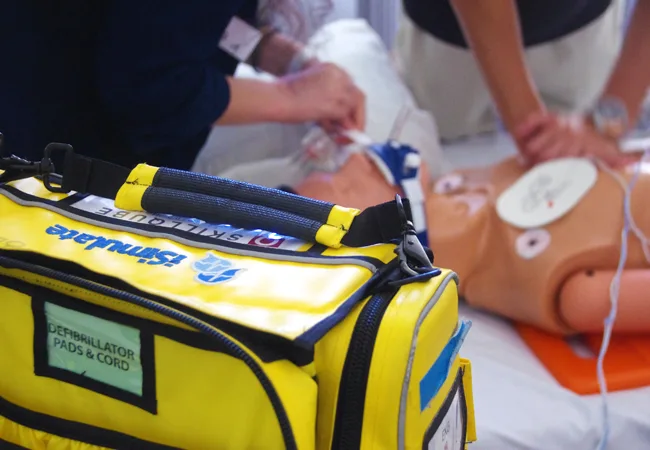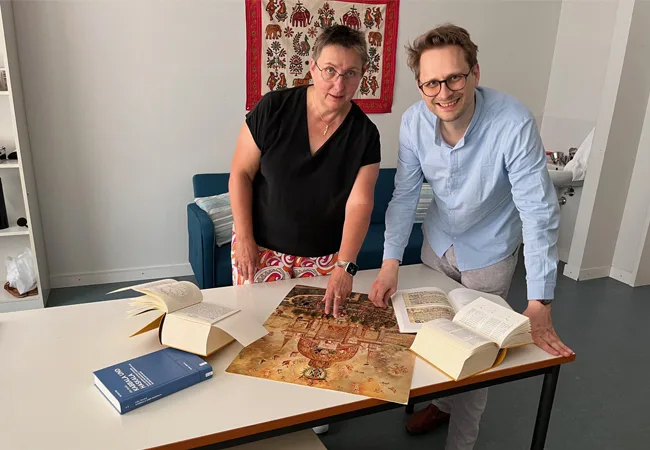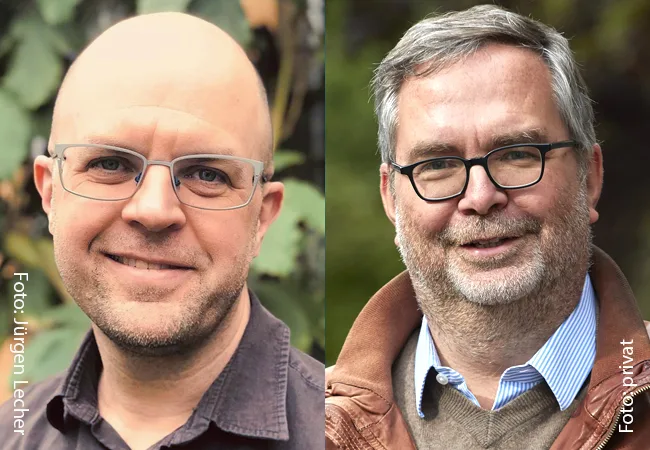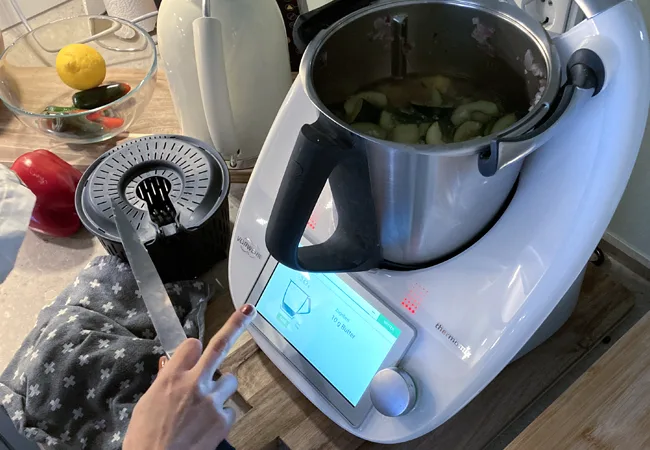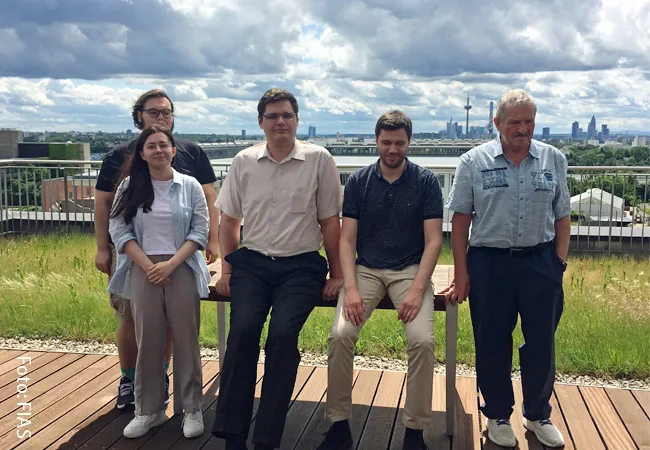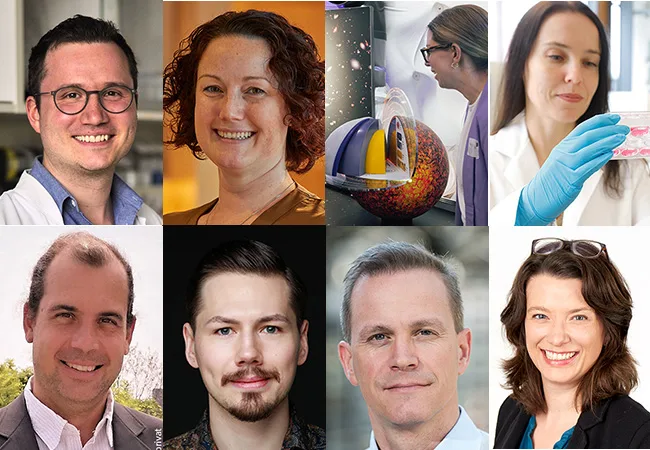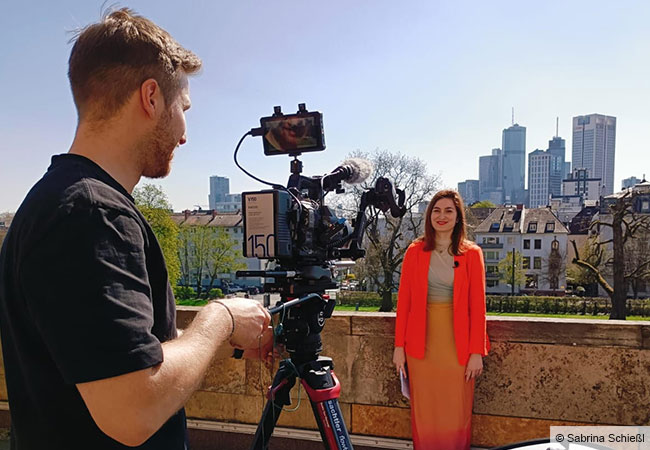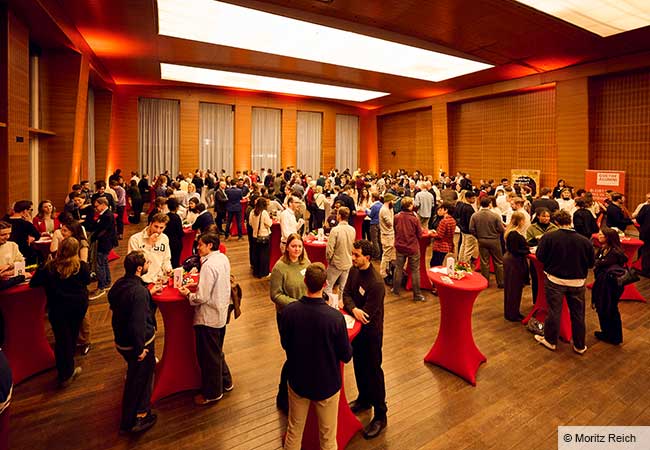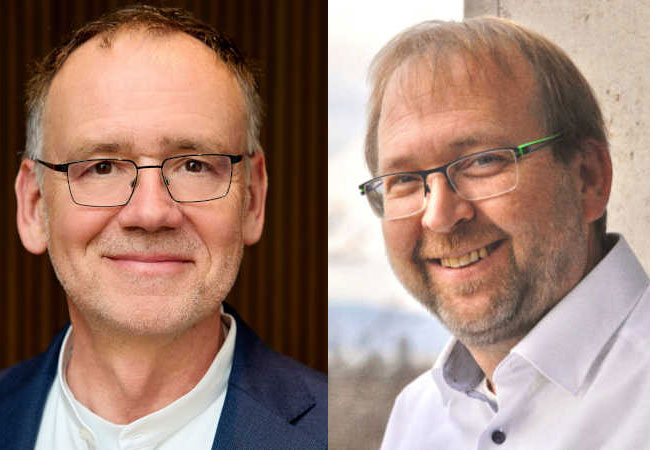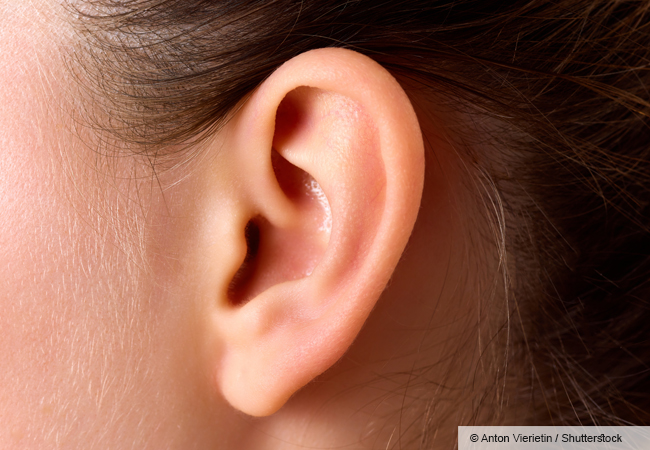Important practical experience for Ukrainian medical students
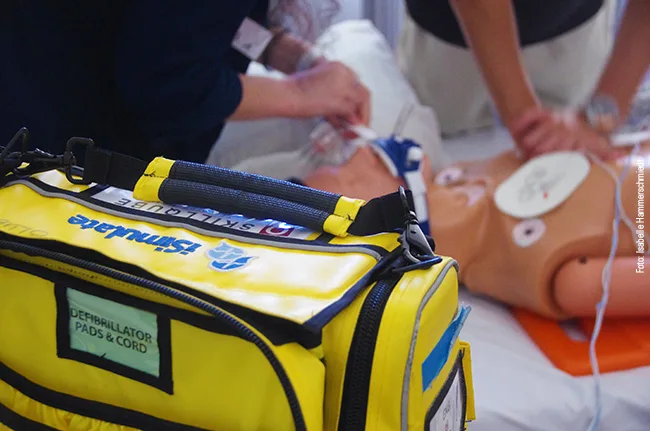
With huge commitment, and financial support from the Goethe-Ukraine-Fund, Professor Miriam Rüsseler and her team from the Frankfurt Institute of Emergency Medicine and Simulation Training (FIneST) have launched a summer school in Emergency Medicine. The aim is to give Ukrainian medical students the practical experience that the Russian war of aggression prevents them from acquiring at the universities in their home country. The staff from the Faculty of Medicine are particularly impressed by the students’ exceptional dedication and willingness to learn.
A shrill acoustic signal sounds, and the medical students leap to their feet, almost simultaneously. They rush to the other end of the room, grab one of the numbered slips of paper and read it carefully. Another signal sounds, this time a siren. And within seconds the room is empty.
The budding medics are learning what it means to be an emergency doctor. Divided into groups, they have to attend to a series of different cases. With only twelve minutes to familiarize themselves with the next scenario, they hurry to the patient to begin treatment. The Frankfurt Institute of Emergency Medicine and Simulation Training (FIneST) organizing these types of scenario training units, which are used to develop medical students’ practical skills in an environment that is as realistic as possible.
So far, so good. But the 14 medical students who are spending the first half of September at Frankfurt University Hospital learning the basics of emergency medicine and directly applying this in practice, are not Frankfurt students. They come from Ukraine and study in Kharkiv, Kyiv and Odessa. Because of the war most of their classes were held online, which can be a huge disadvantage – particularly for a practical subject like medicine.
Two weeks of normality
To help Ukrainian students gain much-needed practical experience, Prof. Miriam Rüsseler initiated a summer school. Rüsseler is head of the Frankfurt Institute of Emergency Medicine and Simulation Training (FIneST) and Dean of Studies in the Faculty of Medicine, and teaches surgery and emergency medicine. “We wanted to offer the students two weeks of normality during their studies,” she says, adding that when she first heard that there were hardly any classes in Ukraine, she wondered how she could help. Accepting the students into the faculty was no solution, especially as there is limited capacity in the degree course in medicine. All the same, she says, it was clear that what the students need most urgently is practical training – and that is how the idea for the summer school was born.
With the aid of her colleagues at FIneST and after intensive preparations, Rüsseler managed to put her idea into practice. She secured the necessary funding from the Goethe-Ukraine-Fund of Goethe University, with most of the money coming from the Dr. Gerhard and Martha Röttger Foundation. Rüsseler and her team selected 15 students from the roughly 50 applications they received. One of them pulled out, leaving 14 students who were able to gain two weeks of practical experience at Frankfurt University Hospital. The only two requirements placed on them were a good knowledge of German and the need to have studied medicine at an advanced level.
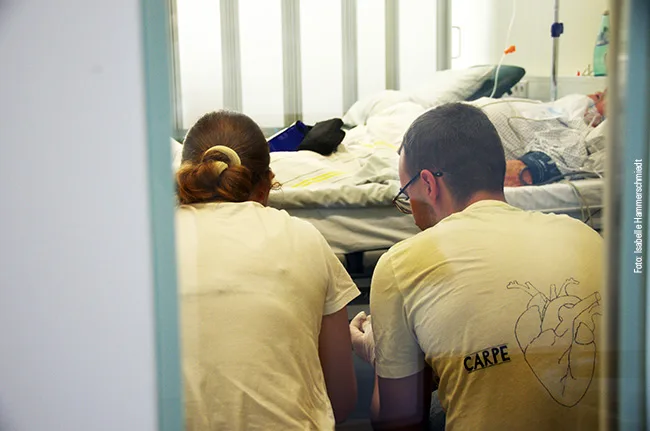
Exceptional dedication
One of the project organizers is Michael Keil, who develops courses in human medicine, and is writing his doctoral thesis on the Summer School. He will be asking participants about their impressions, collecting suggestions and ideas for improvements, and evaluating the observations. The results will feed into subsequent projects. During the two weeks of summer school, Keil served as the contact person for the Ukrainian guests, guiding them through the program, explaining procedures, and answering practical questions on topics such as cafeteria opening times.
Michael Keil is especially impressed by the students’ commitment. This being the first Summer School of its type, the staff at FIneST were unsure whether everything would go smoothly. As it turns out, their worries were unfounded: From the very beginning, the students were not only extremely keen, but also very grateful. “Before the Summer School, all participants had access to the ‘LernBar’ portal [editor’s note: literally translated, this German word means both “learning bar” and “learnable”, and in this context refers to Goethe University’s online author tool containing learning modules], enabling them to obtain theoretical knowledge through eLearning,” he says. Since all of them made intensive use of the offer, they were thoroughly prepared to start the practical part of the Summer School.
This impression is confirmed by Lisa Petersen, organizer of the Summer School’s medical and technical program, who recently completed her own medical studies and is also part of the FIneST team. Petersen and Keil are conducting this Friday’s emergency simulation together. “We knew from the beginning that the students were highly motivated and curious, but also sensed that they were a bit scared – or rather, respectful – of the situation because they didn’t know exactly what was expected of them.” Already after only one day, the students were so enthusiastic that they voluntarily stayed at the University Hospital for an extra two hours in the evening to practice.
Close up to (acting) patients
At the end of the first week of the Summer School, the 14 students in the hospital simulation demonstrate what they have learned in their theoretical classes. In small teams, they take turns to tend to a variety of emergencies, not knowing in advance what sort of “patients” are waiting for them when they enter the examination rooms.
In Room 3, a patient complains of difficulty breathing. The emergency medical team asks about the symptoms and preexisting conditions, and checks the patient’s blood pressure. The students are extremely focused and despite minor communication problems, they are so serious about caring for the patients that it’s easy to forget that this is just a simulation. They work under the expert gaze of FIneST staff members, who assess the performance of the aspiring doctors after every exercise and give them feedback on the spot.
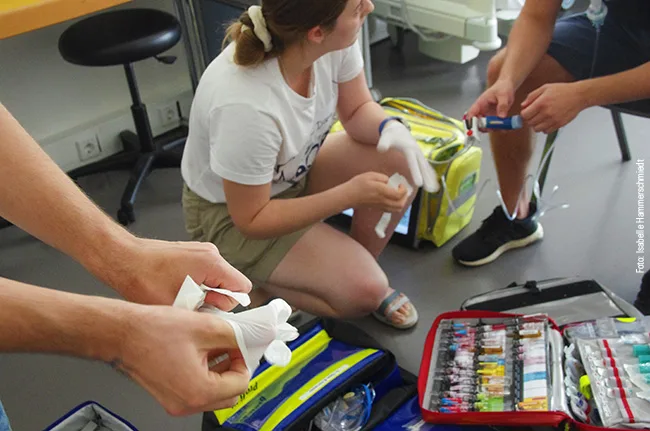
One of the students, Valentyn (20), draws some initial conclusions between two training sessions: “We have all learned and practiced a lot, and the work experience is really based on actual practice.” He comes from Mariupol, but can’t continue his studies there because of the war. “We’ve been able to practice measures like chest compression, which are important in emergencies. We’re all very grateful to Goethe University Frankfurt for giving us this opportunity.”
Valentyn and the other Ukrainian medical students are continuing their practical exercises this Friday afternoon. So far, not all teams have worked through each of the five emergency scenarios. In the second week of the Summer School, they will learn practical skills such as taking blood samples and stitching wounds. For Rüsseler, the students’ feedback and her own observations are already pointing the way forward: To her, this year’s Summer School was a pilot project, and she is definitely planning to continue these practical classes – in Ukrainian. She already has the support of several Ukrainian-speaking doctors in the University Hospital. Now the only thing that’s missing is the funding.


